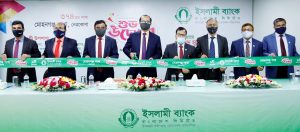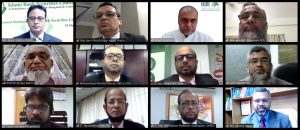Caps with various eye-catching designs, made in Tentulia of Panchagarh
district, are available at reasonable prices across the country.
Despite increase in the prices of raw materials, prices have not
increased for such attractive caps produced by the ‘Tupi Palli’ (cap
village) in Tentulia.
However, the cap industry is gradually losing its tradition for lack
of adequate capital and absence of a pragmatic government policy for
flourishing the small and cottage industry.
Cap manufacturing on small scale first started at remote Mathafata
village in Tentulia upazilla in 1991. However, commercial production
of caps began in 1994.
Initially, some 15,000 to 20,000 caps were produced every month.
However, production has now declined to some 4,000 to 5,000 caps a
month.
The production cost of each cap is Tk 50 to Tk 250 depending on
material and design.
Hundreds of people, both male and female, work in the cap factories of
Tentulia. Alongside looking after their household works, women earn Tk
100 to Tk 200 a day by producing caps to help support their family and
children’s education.
Once caps produced in Mathafata village of Tentulia were exported to
Saudi Arabia, Egypt, Kuwait, Indonesia, Tajikistan, Pakistan and other
Middle Eastern countries after meeting the domestic demand. At
present, export of caps has stopped as China captured the
international cap market.
The demand for cap increases during the holy month of Ramadan and
people work day and night to produce caps which are sold across the
country.
In remote Mathafata village several cap manufacturing units including
Al Khaiyat Cap Industry and Al Iqra Cap Industry were established.
Al Khaiyat Cap Industry was established by Abdul Hannan, a pioneer in
the field here.
In his student life, Hannan got the bright idea of producing caps with
attractive designs. In 1993, he took loan from a friend and produced
100 caps. Later, he brought the caps to Chawkbazar in Dhaka and sold
those with good profit amid good demand.
With his initial profit from sale of caps and another Tk 70,000 loan
taken from two friends, Hannan bought a machine for sewing caps. From
1994, he began commercial production of caps.
Later, he started exporting caps through Mariam International Import Export.
Abdul Hannan said that caps are produced throughout the year but the
demand for caps increases substantially during the month of Ramadan
and ahead of Eid-ul-Fitr and Eid-ul-Azha.
In the past, Bangladeshi caps were in high demand in the international
market, but at present China has captured the market.
The Chinese government itself creates markets for caps which help its
traders capture the foreign market.
China uses Tazima Multi Needle Computerized Embroidery Machine for
mass production of caps. The cost of one such machine is about Tk 6
crore.
The Chinese government supports the cap industry in remote villages
and arranges electricity, gas and good communication system as well as
help market their products.
The Chinese producers have no problem of capital and the production
cost of their caps is also less.
Proprietor of Al Iqra Cap Industry Harun or Rashid said they are
producing caps on a small scale these days since the international cap
market has been captured by China.
Businessmen involved in cap manufacturing said if the problems of the
cap industry are resolved, locally produced caps could be exported by
meeting the domestic demand and thus enable the country to earn
substantial amount of foreign currency. -UNB, Panchagarh




